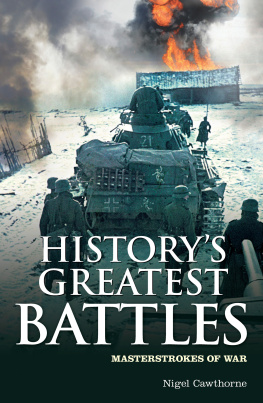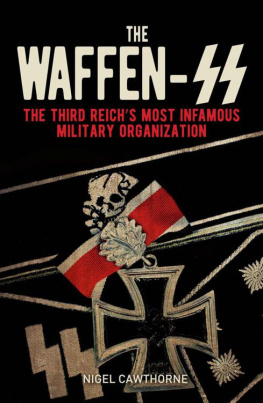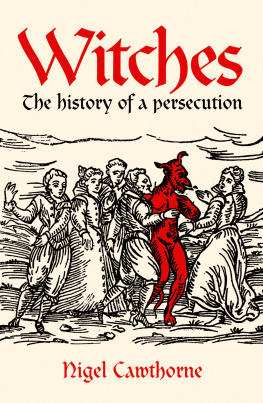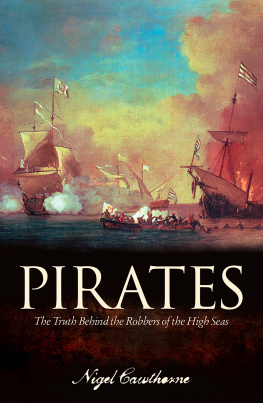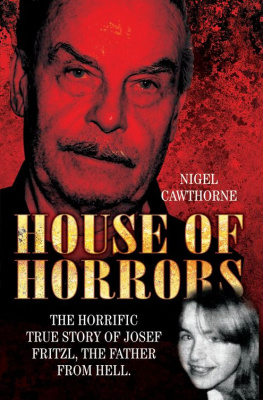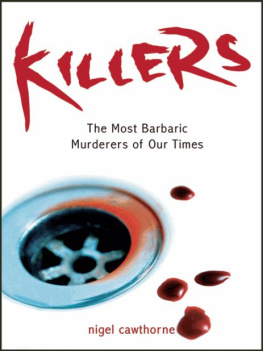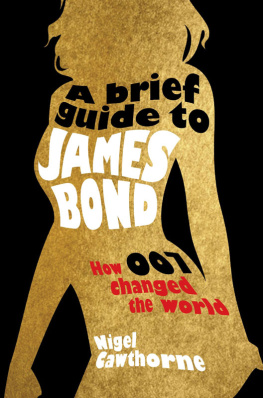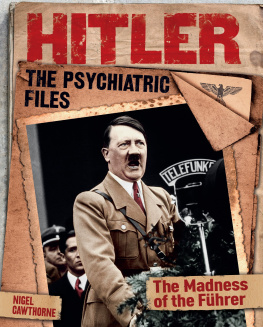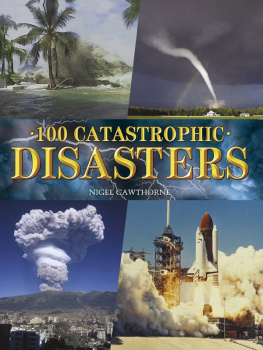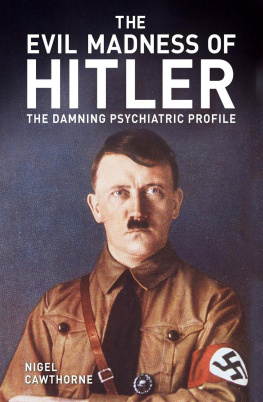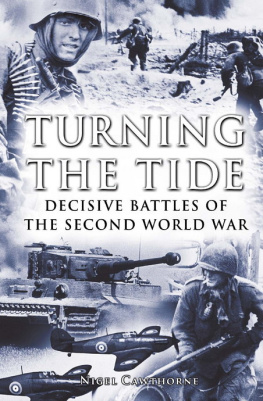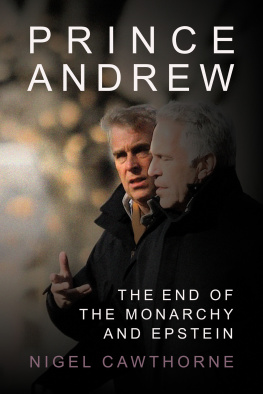Nigel Cawthorne - Historys Greatest Battles
Here you can read online Nigel Cawthorne - Historys Greatest Battles full text of the book (entire story) in english for free. Download pdf and epub, get meaning, cover and reviews about this ebook. publisher: Arcturus Digital Limited, genre: History. Description of the work, (preface) as well as reviews are available. Best literature library LitArk.com created for fans of good reading and offers a wide selection of genres:
Romance novel
Science fiction
Adventure
Detective
Science
History
Home and family
Prose
Art
Politics
Computer
Non-fiction
Religion
Business
Children
Humor
Choose a favorite category and find really read worthwhile books. Enjoy immersion in the world of imagination, feel the emotions of the characters or learn something new for yourself, make an fascinating discovery.
- Book:Historys Greatest Battles
- Author:
- Publisher:Arcturus Digital Limited
- Genre:
- Rating:3 / 5
- Favourites:Add to favourites
- Your mark:
- 60
- 1
- 2
- 3
- 4
- 5
Historys Greatest Battles: summary, description and annotation
We offer to read an annotation, description, summary or preface (depends on what the author of the book "Historys Greatest Battles" wrote himself). If you haven't found the necessary information about the book — write in the comments, we will try to find it.
Historys Greatest Battles — read online for free the complete book (whole text) full work
Below is the text of the book, divided by pages. System saving the place of the last page read, allows you to conveniently read the book "Historys Greatest Battles" online for free, without having to search again every time where you left off. Put a bookmark, and you can go to the page where you finished reading at any time.
Font size:
Interval:
Bookmark:

G reat battles mark historys turning points. They occur at the times and places where cultures and ideologies clash. Marathon in 490 BC showed that the nascent Greek civilization could throw back the might of east. And at Granicus in 334 BC, the tide turned against the great eastern empire. We can, perhaps, see this as the beginning of a struggle between east and west continued throughout history, right up to the present day.
Cannae showed Rome that its military might was not unchallenged and led, ultimately, to the destruction of Carthage. At Alesia, Julius Caeser finally crushed Gaul, making Roman civilization the paramount force in western culture. The Roman defeat at the Teutoburger Wald halted the Empires expansion to the north, while the crushing of resistance in Jerusalem in AD 70 reasserted Roman power in the east and remains the most significant event in the Jewish diaspora.
The Huns advance was blunted at Chlons-sur-Marne, while the Muslim invasion of Europe was halted at Tours. However, the Muslim world itself achieved a lasting victory by taking Constantinople in 1453, a city founded as the capital of a Christian Empire.
Indeed, all the great battles in this book are pivotal in history. If any one of them had gone the other way, the world would have been a very different place. And none of them with the exception, perhaps, of Iwo Jima and Berlin was a foregone conclusion. Even Iwo Jima and Berlin mark significant points in larger conflicts whose results could easily, and catastrophically, have gone the other way. It is easy to forget how different a world we would be living in without the miracle of Dunkirk.
Some of the battles in this book were won by inspired leaders. Alexander the Great, Julius Caesar, Marlborough, Wolfe, Napoleon, Nelson, Washington, Grant and other victors are names that echo down the ages. In some battles, new technology influenced the outcome. Crcy and Agincourt were won by English longbowmen, ordinary folk who could, literally, put two fingers up at the French aristocracy, while at Yorktown ordinary American backwoodsmen, with a little help from the French, defeated the most powerful nation on earth.
But the true victors were always the ordinary soldiers who, through their courage, determination and sacrifice, changed the course of history. Lest we forget...
At Marathon, a small force of Greeks threw back the massive Persian army in a battle that would alter the balance of power between east and west. It is commemorated today, nearly 2,500 years later, by a famous race.
T HE GREEKS SETTLED on the Aegean coast of Asia in around 1000 BC. In the sixth century BC they were drawn into conflict with the Persians. Under Cyrus the Great (c.600529 BC), the Persian Empire expanded westwards as far as the coast of Anatolia and by 550 BC it had swallowed up the small city-states of Ionian Greece.
In 546 BC Athens came under the control of the popularly-elected tyrant Hippias. Seeking to regain power, the Athenian aristocracy made an alliance with the Spartans, who then invaded Athens in 510 BC. Hippias was removed from power but he managed to flee to Persia, where he was granted sanctuary. Afterwards, the Athenians rose up and drove the Spartan garrison out.
Fearing a Spartan counterattack, the Athenians invited the new Persian king, Darius I, to form an alliance with them. As part of the subsequent negotiations, the Greeks were required to undergo what they considered to be an empty ritual the handing over of water and earth. To the Persians, however, this ceremony meant that the Athenians were surrendering their territory to Darius.
Two years after making the alliance, the Athenians fought off a Spartan counterattack without Persian help. The regime in Athens changed once again and the new leaders considered the treaty with Persia to be null and void. At the time, the Persians were involved in campaigns in the Indus valley and Scythia, now part of the Ukraine, and so took little notice. The city-states of Ionian Greece seized the opportunity to rebel but although the Athenians went to their aid the revolt was quickly crushed.
The Persians now had a score to settle with Athens and in 492 BC they tried to invade Greece from the north, but their fleet was wrecked by a storm. They attacked again in the summer of 490 BC. This time 600 galleys worked their way through the Cycladic group of islands from the south. Their aim was to take over Athens and restore Hippias to power.
Athens was a walled city that stood a little way inland, which protected it from direct attack from the sea. On the advice of Hippias, the Persian commander Datis landed the invasion force in a bay near Marathon, some twenty-five miles to the north of Athens. Beyond the beach there was a broad plain, which was perfect terrain for the Persian cavalry.
The Athenians had a choice. They could either remain within their city walls and wait for the Persians to besiege them or they could emerge and face the foe. One of the Athenian generals, Miltiades, was from the Gallipoli Peninsula, which was then part of the Persian Empire. He had fought alongside the Persians in the Scythian campaign but had betrayed them, afterwards fleeing to Greece. Because Miltiades had a strong motivation to fight and knew the Persian way of war the Athenians made him commander-in-chief. He decided that it would be best to take the battle to the enemy and meet the Persians at their beachhead.
The Athenians raised an army of 10,000 men practically every able-bodied man in the city. The Spartans promised their help, but only after the end of the month: they had important religious festivals to attend to. Of Athens fellow Greek city-states only tiny Plataea assisted the Athenians, sending 1,000 hoplites (heavily-armed infantrymen).
The Persians landed an army of approximately 25,000 men against this tiny force, including large contingents of archers and cavalry. The horsemen would sometimes carry bows but they were more usually equipped with armour, lances and javelins. This huge army drew up along the shoreline with the Persian fleet behind it.
When the Greeks arrived after their twenty-six-mile march down the path from Athens, they took up their positions at the inland end of the valley. It was narrower there and their flanks were protected by rocky hills on either side. Miltiades knew that the Persian tactics would be to use cavalry to attack the Greek phalanx on its flanks, thereby forcing the formation towards the centre where it could be overcome by heavy infantry. Accordingly, he instructed the Greeks to strengthen their flanks by cutting down trees and sharpening the branches, to create dangerous obstacles known as abatis.
There was a delay before the battle started. Ancient sources put the length of the hiatus at between three and eight days. Certainly it was not in Miltiades interest to attack. With the road to Athens blocked by his men the city was safe and the longer he delayed the more chance there was of the Spartans arriving.
It is not known why the Persians hesitated. Perhaps they were considering re-embarking their troops and landing elsewhere. If so, it is unlikely that this strategy would have succeeded because transferring troops and horses from shore to ship and back again is time-consuming. Also, the Greeks had lookouts all down the coast and Miltiades and his army would have been waiting for the Persians wherever they landed.
The battle eventually began with volley after volley of Persian arrows, after which the Persian line began to advance with its cavalry on the flanks. The Greek historian Herodotus, who was born about six years after the battle, wrote that the Greeks then ran at the Persian line when it was still almost a mile away. This seems unlikely because Greek foot soldiers were heavily armed, so if they ran for any distance they would soon be exhausted. It was difficult to maintain a formation at a run, which is why Greek armies traditionally closed at a walking pace. Besides, any advance by the Greeks would have meant abandoning their well-protected position in the narrowest part of the valley, where they had prepared their defences.
Next pageFont size:
Interval:
Bookmark:
Similar books «Historys Greatest Battles»
Look at similar books to Historys Greatest Battles. We have selected literature similar in name and meaning in the hope of providing readers with more options to find new, interesting, not yet read works.
Discussion, reviews of the book Historys Greatest Battles and just readers' own opinions. Leave your comments, write what you think about the work, its meaning or the main characters. Specify what exactly you liked and what you didn't like, and why you think so.

